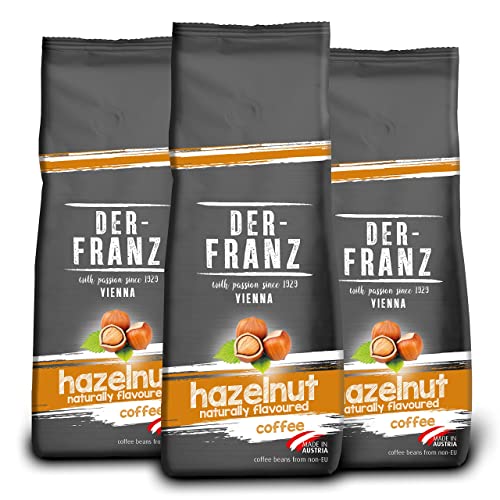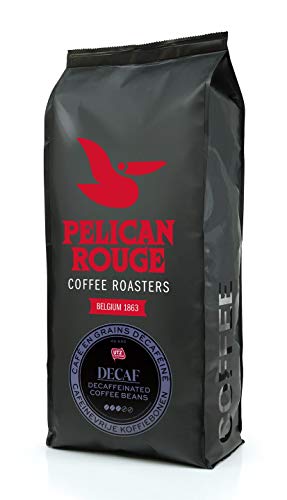What's The Job Market For Coffee Beans Types Professionals Like?
페이지 정보
작성자 Abel 댓글 0건 조회 8회 작성일24-09-03 14:12본문
Coffee bean to cup coffee beans Types: Arabica, Robusta, Liberica, and Excelsa
 You've probably heard that different types produce distinct flavors. Read on to learn about four of the most well-known varieties: Arabica, Robusta, Liberica and Excelsa.
You've probably heard that different types produce distinct flavors. Read on to learn about four of the most well-known varieties: Arabica, Robusta, Liberica and Excelsa.
Excelsa beans, which are a variety of Liberica that is grown only in Southeast Asia. They have a more fruity and more tart flavor profile and are often added to blends of beans to add depth.
Arabica
Arabica is the most sought-after coffee worldwide accounting for 75% of the world's coffee beans produced. Arabica beans have a sweeter and less sour taste than Robusta, and come with a variety of flavor profiles. The aroma and taste of a coffee may vary in a wide range depending on the cultivation conditions and processing methods used to produce it.
The word "coffee" is derived from the Arabic word for berry and coffee beans are fruit seeds that grow inside bright red berries. It is believed that ancient Ethiopian shepherds found that their goats were energized by eating these fruit berries. The cultivation of coffee spread quickly all over the world.
Coffee beans can be grown at higher altitudes, and are capable of thriving in cold temperatures and plenty of rain. This is one of the reasons for why Arabica is regarded as the best tasting coffee.
Many specialty coffee shops and roasters concentrate on the ethical sourcing of arabica beans, with a focus on fair wages for farmers and sustainable farming practices. These companies blend arabica beans in order to create unique coffees, which can be used in different brewing methods. Blending can be used to control the flavour, aroma and body of the coffee and is often preferred in order to achieve a consistent and balanced taste that appeals to a larger market.
Robusta
Robusta beans are the second most sought-after type of unroasted coffee beans bean around the world. They contain more caffeine per bean than Arabica and are more resistant to disease and pests. They also contain more chlorogenic acids, which are naturally occurring antioxidants. These acids can cause oxidation in the brewing process, and can result in undesirable flavors.
The plant itself is more resilient than arabica and is able to thrive in less favorable climate conditions and at lower elevations. It can withstand temperatures that are higher and thrives in direct sunlight. It produces more coffee per plant and grows more quickly than arabica. This makes it a economical crop to cultivate.
While it may seem counterintuitive Robusta beans are typically combined with arabica to create unroasted coffee beans blends. If you notice names like Uganda or Kenya on a coffee bag it's possible that there's also some robusta.
While some roasters use exclusively arabica beans, the majority use combine the two varieties in order to cut costs and ensure quality. To ensure the integrity of the flavor, you should choose a high quality bean from a reliable source. The best way to achieve this is to purchase your beans directly from the farmer.
Liberica
Liberica coffeee beans have a shape like a football, which is why they are different from other coffee beans. They have an aroma that is floral, fruity and smokey. They are often added to other coffee bean varieties to add a more intense, fuller flavor.
Liberica coffee beans can be found in West Africa, Malaysia (Borneo) and Southeast Asia. They can grow in low altitudes and can withstand hot, humid climates. They are also more resistant to diseases than Arabica or Robusta.
These qualities make them perfect to grow at home. You can purchase seeds on the internet from a variety of sources, but it's best to purchase them from local producers to ensure the quality of the beans. The ideal conditions for growing Liberica coffee plants are fertile, deep volcanic soils with moderately acidic pH, and adequate annual rainfall.
Excelsa is a different variety of coffee bean. It was initially classified as a separate species, but has since been classified as a Liberica variant. These coffee beans are ovals that grow on large 20-30-foot coffee plants that are situated at medium altitudes. Their unique flavor is tart and sour, making them a popular option for house blends. They are also less heavy on flavor and caffeine than Arabica and Robusta and Robusta, yet they possess a unique richness of flavor.
Excelsa
Excelsa coffee beans aren't as common as Arabica and Robusta despite being the fourth most popular. In fact, they were considered a distinct unroasted coffee beans plant species until 2006 when they were classified as a synonym for Coffea liberica var. dewevrei. They are produced in Southeast Asia today and account for 7% of the world's production of coffee. These Coffee beans types beans are shaped in the shape of a teardrop and are dark and mysterious in taste. These beans are often utilized to give blends extra body and a rich, tart taste of ripe fruit.
Arabica beans are the most popular and are well-known for their more sweetness. They thrive best at high altitudes and enjoy warm, tropical climates. They can be a bit acidic. When roasted and brewed correctly they may impart notes like nuts, chocolate or even fruit.
Robusta is an almost identical choice to Arabica and accounts for around 40 percent of the world's coffee. Robusta is rounder and smaller, but they have more caffeine than Arabica. They also taste bitterer than the other two varieties and have an earthy and woody taste.
After having a better understanding of the four most common types of brew, it's time to select the best brew. If you want a smooth, delicate flavor, opt for an arabica or a blend of arabica and robusta beans.
 You've probably heard that different types produce distinct flavors. Read on to learn about four of the most well-known varieties: Arabica, Robusta, Liberica and Excelsa.
You've probably heard that different types produce distinct flavors. Read on to learn about four of the most well-known varieties: Arabica, Robusta, Liberica and Excelsa.Excelsa beans, which are a variety of Liberica that is grown only in Southeast Asia. They have a more fruity and more tart flavor profile and are often added to blends of beans to add depth.
Arabica
Arabica is the most sought-after coffee worldwide accounting for 75% of the world's coffee beans produced. Arabica beans have a sweeter and less sour taste than Robusta, and come with a variety of flavor profiles. The aroma and taste of a coffee may vary in a wide range depending on the cultivation conditions and processing methods used to produce it.
The word "coffee" is derived from the Arabic word for berry and coffee beans are fruit seeds that grow inside bright red berries. It is believed that ancient Ethiopian shepherds found that their goats were energized by eating these fruit berries. The cultivation of coffee spread quickly all over the world.
Coffee beans can be grown at higher altitudes, and are capable of thriving in cold temperatures and plenty of rain. This is one of the reasons for why Arabica is regarded as the best tasting coffee.
Many specialty coffee shops and roasters concentrate on the ethical sourcing of arabica beans, with a focus on fair wages for farmers and sustainable farming practices. These companies blend arabica beans in order to create unique coffees, which can be used in different brewing methods. Blending can be used to control the flavour, aroma and body of the coffee and is often preferred in order to achieve a consistent and balanced taste that appeals to a larger market.
Robusta
Robusta beans are the second most sought-after type of unroasted coffee beans bean around the world. They contain more caffeine per bean than Arabica and are more resistant to disease and pests. They also contain more chlorogenic acids, which are naturally occurring antioxidants. These acids can cause oxidation in the brewing process, and can result in undesirable flavors.
The plant itself is more resilient than arabica and is able to thrive in less favorable climate conditions and at lower elevations. It can withstand temperatures that are higher and thrives in direct sunlight. It produces more coffee per plant and grows more quickly than arabica. This makes it a economical crop to cultivate.
While it may seem counterintuitive Robusta beans are typically combined with arabica to create unroasted coffee beans blends. If you notice names like Uganda or Kenya on a coffee bag it's possible that there's also some robusta.
While some roasters use exclusively arabica beans, the majority use combine the two varieties in order to cut costs and ensure quality. To ensure the integrity of the flavor, you should choose a high quality bean from a reliable source. The best way to achieve this is to purchase your beans directly from the farmer.
Liberica
Liberica coffeee beans have a shape like a football, which is why they are different from other coffee beans. They have an aroma that is floral, fruity and smokey. They are often added to other coffee bean varieties to add a more intense, fuller flavor.
Liberica coffee beans can be found in West Africa, Malaysia (Borneo) and Southeast Asia. They can grow in low altitudes and can withstand hot, humid climates. They are also more resistant to diseases than Arabica or Robusta.
These qualities make them perfect to grow at home. You can purchase seeds on the internet from a variety of sources, but it's best to purchase them from local producers to ensure the quality of the beans. The ideal conditions for growing Liberica coffee plants are fertile, deep volcanic soils with moderately acidic pH, and adequate annual rainfall.
Excelsa is a different variety of coffee bean. It was initially classified as a separate species, but has since been classified as a Liberica variant. These coffee beans are ovals that grow on large 20-30-foot coffee plants that are situated at medium altitudes. Their unique flavor is tart and sour, making them a popular option for house blends. They are also less heavy on flavor and caffeine than Arabica and Robusta and Robusta, yet they possess a unique richness of flavor.
Excelsa
Excelsa coffee beans aren't as common as Arabica and Robusta despite being the fourth most popular. In fact, they were considered a distinct unroasted coffee beans plant species until 2006 when they were classified as a synonym for Coffea liberica var. dewevrei. They are produced in Southeast Asia today and account for 7% of the world's production of coffee. These Coffee beans types beans are shaped in the shape of a teardrop and are dark and mysterious in taste. These beans are often utilized to give blends extra body and a rich, tart taste of ripe fruit.
Arabica beans are the most popular and are well-known for their more sweetness. They thrive best at high altitudes and enjoy warm, tropical climates. They can be a bit acidic. When roasted and brewed correctly they may impart notes like nuts, chocolate or even fruit.
Robusta is an almost identical choice to Arabica and accounts for around 40 percent of the world's coffee. Robusta is rounder and smaller, but they have more caffeine than Arabica. They also taste bitterer than the other two varieties and have an earthy and woody taste.
After having a better understanding of the four most common types of brew, it's time to select the best brew. If you want a smooth, delicate flavor, opt for an arabica or a blend of arabica and robusta beans.

댓글목록
등록된 댓글이 없습니다.




















